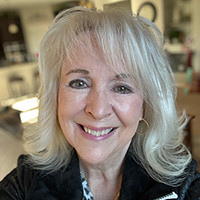How to Rely on Your Inner Spirit’s Direction During Life Changes
 When life brings you down, when circumstances seem unfavorable, when your aspirations start to resemble nightmares, resist the urge to believe that things won’t improve. Your journey is far from over.
When life brings you down, when circumstances seem unfavorable, when your aspirations start to resemble nightmares, resist the urge to believe that things won’t improve. Your journey is far from over.
Such difficulties may serve as gentle nudges from the universe, encouraging you to shift your focus, explore new avenues, and progress. It’s an opportunity to let go of past burdens and offer forgiveness to those involved in your suffering.
Our celestial beings, mentors, and ancestors are eternally present with us. They share in our grief and rejoice in our happiness. They guide us subtly along the correct path, yet we may not always heed that soft inner voice.
Our spiritual companions strive to intervene when something threatens us that should not be part of our journey. However, the decision to listen remains ours. Ignoring their advice often leads us off track.
We’ve all experienced this. I certainly have. In 2008, I was receiving unmistakable signals to slow down and leave a job that was exhausting me emotionally and spiritually. Yet, I resisted. I feared for my financial stability if I chose to depart.
For several months, my guides pressed me to release and move on. Ultimately, I did. I resigned. I was uncertain about my financial future, but I understood I could not remain for my own well-being. It took every ounce of bravery within me, but I finally exited.
Nonetheless, I had delayed too long. Just one week post-resignation, I fell seriously ill. I was bedridden, required a blood transfusion, and my body simply gave way. I was terrified. How would I support myself now? I was incapable of job searching, let alone working. Movement was a struggle.
The soul always knows how to heal itself. The challenge is to silence the mind ~ Caroline Myss
In my desperation, I sought a sign from the angels. Was this merely a temporary setback, or was it the conclusion of my journey? Please reveal the path ahead.
Within hours, I received a call confirming my eligibility for unemployment sick leave benefits, indicating that I would receive financial assistance during my recuperation. The signs couldn’t have been more evident. My spirit team had heard my plea.
Fast forward to 2010. Remarkably, every bill had been managed during that challenging period. I was actually more financially stable than I had been while employed in that draining position, and for the first time in years, I experienced true happiness and tranquility. That was the genuine blessing: inner harmony and joy.
Listening to our guides can pose challenges, particularly when fear clouds our faith. The “what ifs” and hesitant “how” inquiries begin to infiltrate our minds. I experienced that uncertainty. I lacked trust initially.
However, when I finally embraced trust, those questions diminished. The answers emerged organically. The support I sought materialized. And yes, it genuinely can be that straightforward, if you attentively heed and trust the messages that flow from your intuition, your ancestors, your guides, and your angels. They always desire what is best for you.
Faith is taking the first step even when you don’t see the whole staircase ~ Martin Luther King Jr.
How To Stay Grounded & Listen
Engaging with your intuition and the insights of your spiritual companions is a spiritual practice that becomes more robust with time, patience, and trust. Here are some strategies to enhance your ability to hear their messages clearly while remaining calm, centered, and grounded during life’s uncertain phases:
Establish Daily Quiet Time: Dedicate a few moments each day to sit in silence, free from distractions. This simple practice opens the door to subtle messages from your higher self, angels, and guides.
Practice Breath Awareness: When anxiety arises, focus on your breath. Inhale serenity, exhale fear. This anchors your energy and clears mental turmoil, enabling divine messages to flow more freely.
Embrace The Power Of Prayer: Prayer is one of the simplest yet potent means to connect with your angels and guides. Speak from your heart, whether silently or aloud, and share your fears, hopes, and gratitude. Prayer creates a sacred channel of communication, reminding you that you are never alone. Even a few heartfelt words can bring comfort, guidance, and peace.
Reconnect With Nature: Walk barefoot on the ground or grass, sit under a tree, or swim in the ocean. Nature rejuvenates your spiritual frequency and facilitates the reception of divine insights. If a garden or park is unavailable, create a small pot-plant garden on your balcony or windowsill to bring that grounding energy closer to you.
Document Your Inner Dialogue: Write down the thoughts, feelings, dreams, and “random” ideas that come to you. Often, spirit and the divine communicate through subtle impressions and recurring patterns.
Use Oracle Cards Intentionally: Draw a daily card with the clear intention of gaining guidance. The cards can serve as a reflection of your intuition, presenting messages that your logical mind might overlook.
Request Guidance: Communicate with your guides clearly. Ask aloud, mentally, or through writing. Then, let it go. Trust that answers will manifest in divine timing, often through synchronicities, individuals, or dreams.
Maintain A Dream Journal: Keep a journal or notepad near your bed and jot down anything you remember upon waking. Dreams serve as a sacred bridge between your conscious mind and higher guidance. Patterns, symbols, and recurring themes frequently convey messages from your angels and guides. Over time, you’ll recognize how spirit communicates with you through the dream language.
Pursue Astral Projection: Astral projection involves consciously traveling beyond the physical realm into higher dimensions. You may encounter guides, angels, or loved ones during these experiences. Start with relaxation, meditation, and protective visualizations, then set an intention to connect solely with beings of the highest light. Even small, gentle experiences can provide reassurance, clarity, and deep spiritual insight.
Envelop Yourself In Protective Light: Visualize white or golden light surrounding you before sleep or meditation. This simple energy practice elevates your vibration and maintains a clear spiritual connection.
Pay Attention To Your Body’s Wisdom: Your body acts as a sacred vessel, often registering intuitive insights first. Observe how you feel in your gut, heart, or throat when making choices. Your body speaks truth.
Reduce Exposure To Energy Drains: Disconnect from toxic media, conversations, and environments. Safeguarding your energy simplifies the process of hearing your higher guidance without interference or distraction.
Trust, Even When It Feels Challenging: Occasionally, intuition nudges us towards unfamiliar or hard paths. Embrace that discomfort. True trust is acting even when the outcome isn’t apparent—because your soul knows the way.
|
Sheri is an international psychic and angel reader who offers clear insights on finance, career, relationships, manifesting your dreams, and resolving life’s complexities. Since 2004, Sheri has owned an International Spiritual Healing Centre where she runs her Reiki practice – either working with clients or teaching them Usui Reiki levels. She utilizes her office space for readings conducted via mail, phone, chat, or in person. Since 2008, she’s refined her abilities on various psychic service platforms, providing readings through telephone, chat, or email. She also collaborates with a spiritual network for those who have endured deep loss, drawing from her firsthand experiences with such tragedies. Sheri’s work is characterized as honest, compassionate, and transformative, and she aspires to see her clients thrive in their spiritual journeys and contribute positively to the world. You can book a psychic reading with Sheri at PsychicAccess.com. |
Life changes can present a daunting and uncertain phase for many individuals. Whether it’s embarking on a new job, relocating to a different city, ending a relationship, or any significant alteration, it’s natural to feel overwhelmed and uncertain about the future. During such moments, seeking guidance and support from your spirit can be immensely beneficial.
Trusting your spirit’s guidance amid life transitions entails tuning into your intuition, connecting with your inner wisdom, and heeding your heart. Here are several tips to steer you through these changes with confidence and clarity:
1. Trust your intuition: Your intuition serves as an internal navigation system that aids in making decisions aligned with your highest good. Remain alert to any gut feelings, hunches, or inner prompts that surface during this time. Believe in your intuition’s wisdom and follow its lead.
2. Connect with your inner knowledge: Dedicate time to quiet your mind and establish a connection with your inner wisdom through meditation, journaling, or other spiritual practices. Contemplate what you genuinely desire and what actions you need to undertake to advance. Have faith that the answers reside within you and pay attention to the wisdom that comes forth.
3. Follow your heart: Your heart acts as a powerful guide that can direct you appropriately during life transitions. Tune into your heart’s desires and passions, and pursue what brings you happiness and fulfillment. Trust that your heart has your best interests at heart and have the courage to act on its guidance.
4. Have faith in the process: Life transitions can be chaotic and unpredictable, yet trust that everything is unfolding as it should. Believe that the universe has a plan for you and that you are being guided toward your greater good. Understand that you are supported and safeguarded every step of the way.
5. Seek support: During transitional periods, it’s vital to surround yourself with nurturing and supportive individuals who can assist you through the changes. Reach out to friends, family, or a spiritual mentor for guidance, encouragement, and a listening ear. Remember that you are not alone and that many people care and are eager to help.
Trusting your spirit’s guidance during life transitions allows you to navigate these changes with grace and ease. By tuning into your intuition, connecting with your inner wisdom, following your heart, trusting the process, and seeking support, you can move through this phase with confidence and clarity. Bear in mind that you are never alone, and your spirit always accompanies you on your journey. Continue reading













